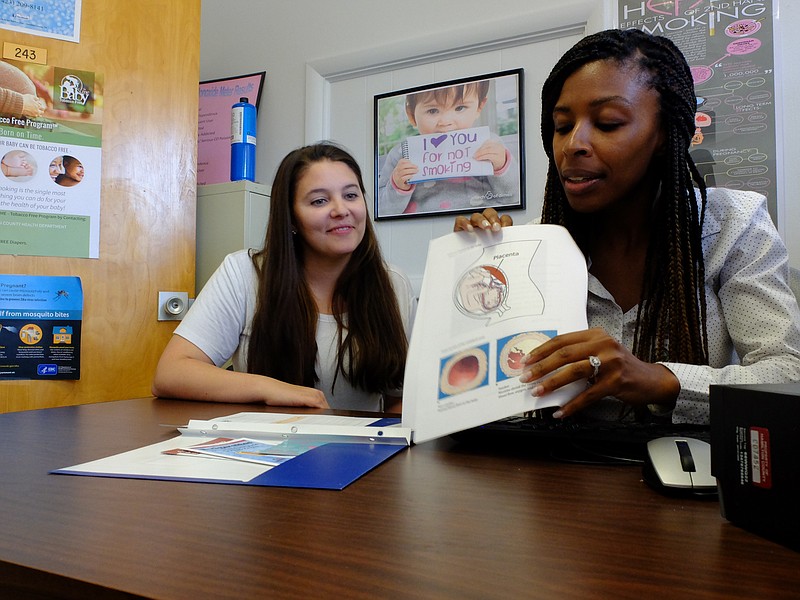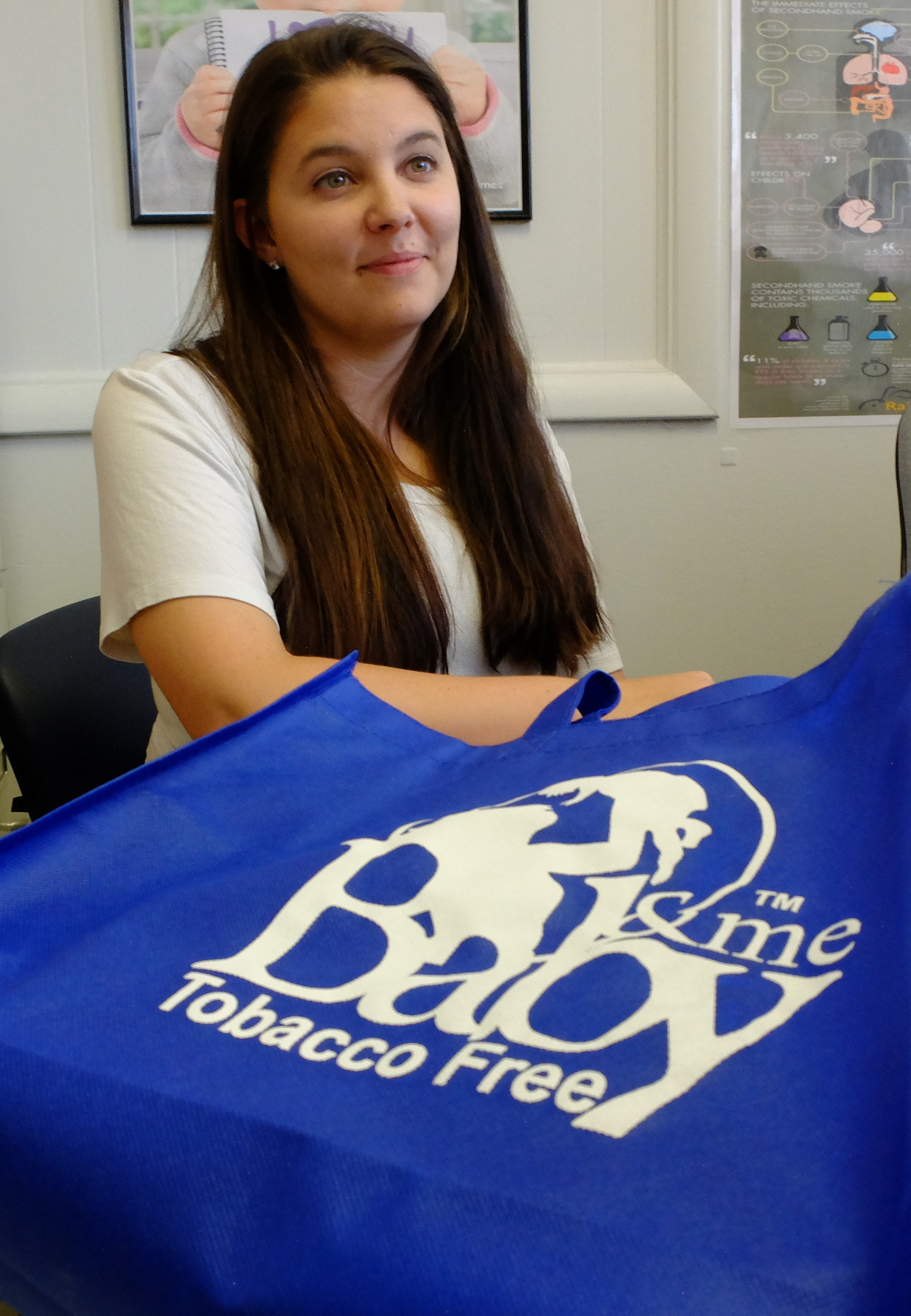Caitlin Hyma knew cigarettes were bad for her health when she started smoking in her late teens.
She also knew she would quit if and when she became pregnant. But when that day came, putting the cigarette out was easier said than done.
"It's crazy that you still know all these things, and you're still smoking cigarettes," said Hyma, who despite wanting the best for her unborn child, struggled to kick the habit.
Dr. Andrea Goins, medical director of newborn nurseries at Erlanger Health System, said the nicotine and other chemicals in cigarettes harm developing babies by restricting oxygen and blood flow to the fetus. Tobacco use also accelerates fetal heart rate and decreases fetal movement.
Learn more
Information about the Baby & Me – Tobacco Free Program is available at www.babyandmetobaccofree.org and through local health departments.
Pregnant women who are exposed to tobacco or other nicotine products - including electronic cigarettes and secondhand smoke - face many potential health concerns for themselves and their babies.
They are more likely to experience complications, such as problems with the placenta or a pregnancy that occurs outside the womb, and their babies are at higher risk for premature birth and low birthweight, which can lead to illness and lengthy hospital stays. Serious birth defects and infant death can also occur.
"If mom can quit as soon as she's pregnant, then baby is going to be better off immediately after birth as well as long term," Goins said, although it's never too late to stop smoking.
Birth certificate data from 2014 show that about 14.9 percent of moms in Tennessee smoked during pregnancy. The national average is 8.4 percent. Tennessee ranked higher than Georgia and Alabama, where 6.5 and 10.8 percent of pregnant women smoked, respectively.
Beth Bailey, a professor at East Tennessee State University who researches, among other topics, rural health disparities and the effects of prenatal environments, said the statewide maternal smoking rate only tells part of Tennessee's story.
In some rural and Appalachian counties, as many as 40 percent of women report smoking while pregnant, according to Bailey.
"Many pregnant women will tell you they see no need to quit smoking, as their mothers smoked while pregnant with them, and their grandmothers smoked while pregnant with their parents, and they all turned out fine," she said.
In Hyma's case, she wanted to quit, but she needed help. So when a friend told her about the Baby & Me – Tobacco Free Program at the Chattanooga-Hamilton County Health Department, she was excited to join.
"It wasn't until I became pregnant that I had to start thinking about someone other than myself," she said.
Pregnancy is the perfect time for a smoking intervention, because many women are highly motivated to quit, and it leads to better outcomes for mom, baby and health care costs, said Laurie Adams, national director and founder of The Baby & Me – Tobacco Free Program.
Adams worked as a health educator and cessation specialist in western New York, then used her experience and a small grant from the state to launch the program in 2001.
"The concept of the program was to support [mothers] with brief interventions over an extended period of time and then we incorporated that into an incentive program," Adams said.
Baby and Me has been adopted by 20 states, including Tennessee but not Georgia or Alabama.
The program offers counseling and support group services, as well as a $25 voucher for free diapers each month throughout pregnancy and up to 12 months after birth for moms who abstain from nicotine products. Other smokers in the household also can receive vouchers if they quit.
To hold participants accountable, they blow into a device that's similar to a Breathalyzer but can track tobacco use.
"We didn't buy diapers for the first year after our baby shower plus the vouchers," Hyma said, adding that knowing she was helping her family at a time she wasn't working kept her motivated to stay smoke-free.
"I felt proud about not smoking, but I relied on that being my contribution to our family and our funds," she said. "I'm still grateful that I was part of that and learned all that stuff, because it's kept me smoke-free two years later."
Tennessee's Southeastern Health District, which comprises the counties surrounding Hamilton County, implemented the program in May 2014, the first in the state to do so. As of Aug. 1, all but one county in Tennessee has implemented Baby and Me.
More than 4,000 women have participated so far, and the Tennessee Department of Health credits Baby and Me with saving $2.4 million during its first year.
The health department found that 68.3 percent of women who completed the program successfully quit smoking, and those women were 60 percent less likely to have a low-birthweight baby.
Tennessee's Baby and Me program is paid for using settlement funds from tobacco companies.
In 2015, Tennessee received $136 million, according to a report from the Kaiser Family Foundation, but the state uses little tobacco settlement money on smoking cessation programs.
Although the state spends less money than others on anti-smoking campaigns, Baby and Me's reach is greatest in Tennessee, and it's the only state to also fund the program through TennCare, which frees up more tobacco settlement funds for other projects.
"Tennessee's approach to sustaining this program is a gold standard for all of these programs nationwide," Adams said.
Contact staff writer Elizabeth Fite at efite@timesfreepress.com or 423-757-6673.


